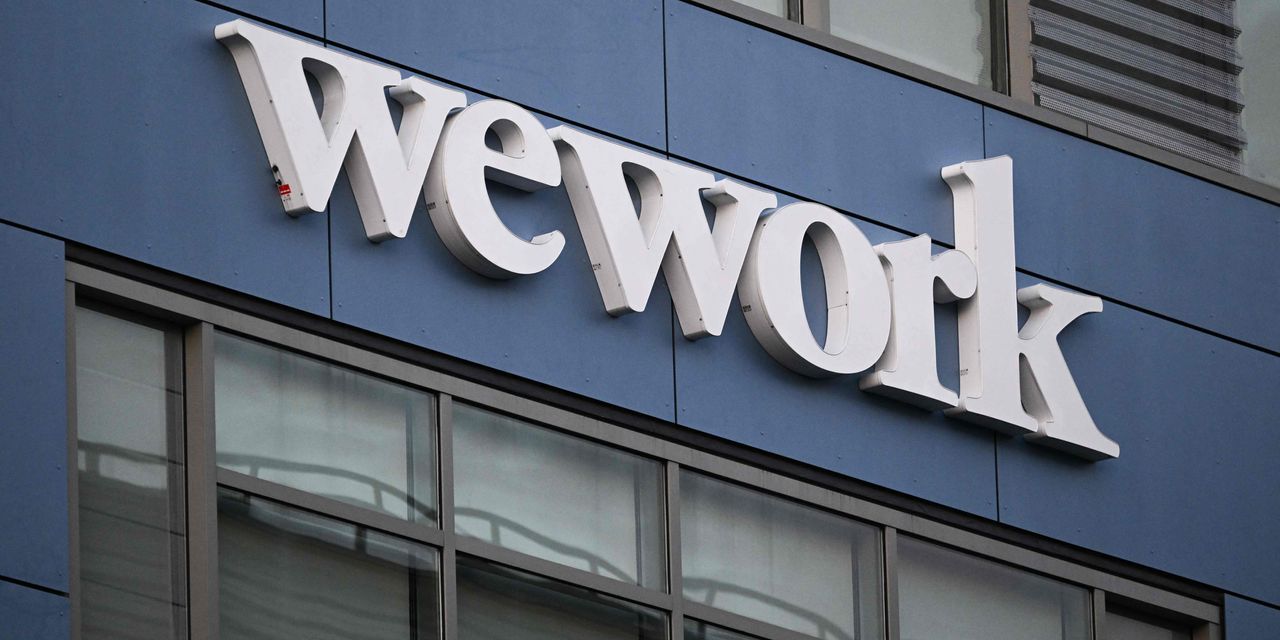WeWork Inc., which filed for bankruptcy Monday, attracted meme stock-style attention even with its Chapter 11 looming large on the horizon.
In mid-September the beleaguered company’s stock saw a record runup amid meme stock chatter, just weeks after WeWork
WE,
warned that it may not be able to stay in business.
Even with WeWork’s bankruptcy imminent, the stock was attracting attention, @MichaelCrush73 tweeted Tuesday. “A day before $WE got delisted, people were bidding this up 5%,” @MichaelCrush73 wrote. “It goes without saying that no one should ever buy a stock that is rumored to be headed to bankruptcy.”
Related: WeWork files for bankruptcy, capping a stunning downfall
Nonetheless, some investors have an attraction for bankrupt companies, as evidenced by the surge in Bed Bath & Beyond Inc.’s shares earlier this year despite the home-goods retailer’s well-documented woes. Just a few months later, Bed Bath & Beyond said that its shares are canceled, and “have no value” as the company’s bankruptcy plan takes effect.
WeWork’s stock was halted before the open Monday and is still halted Tuesday. The company’s shares are down 98.5% in 2023, compared with the S&P 500 index’s
SPX
gain of 13.7%.
Howard Ehrenberg, bankruptcy and reorganization practice partner at law firm Greenspoon Marder described WeWork’s situation as “quite a mess” in a statement sent to MarketWatch last week. “It’s hard to envision how they can recover from this, perhaps they’ll re-emerge as a much smaller company,” he added.
WeWork’s bankruptcy follows a decade of financial problems. WeWork accepted a rescue package from Japanese tech conglomerate SoftBank in 2019, the same year that the flexible workspace company’s CEO and co-founder Adam Neumann stepped aside.
Ted Gavin, managing partner and founder of turnaround firm Gavin/Solmonese told MarketWatch that WeWork’s bankruptcy was years in the making. “The collapse of WeWork actually came a few years ago when it ran out of money after pursuing an aggressive strategy of expansion through snatching up office space where no price was too great,” he said, in a statement Friday, “The investor bailout and management change, however, didn’t do the one thing a bankruptcy can do: allow the company to reject those burdensome leases.”
“In a post-pandemic remote-work environment, does anyone really need WeWork anymore?” Gavin added. “Probably, yes, but in a far more limited fashion than was the case when WeWork rose to prominence.”
Related: WeWork landlords could see steep losses on any rejected leases in bankruptcy
“Now is the time for us to pull the future forward by aggressively addressing our legacy leases and dramatically improving our balance sheet,” said WeWork CEO Dave Tolley in the statement Monday. “We defined a new category of working, and these steps will enable us to remain the global leader in flexible work.
Read the full article here







